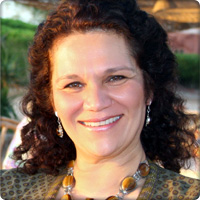Ask Dr Enam Abood: “I think I have depression but am worried about seeking help.”
In a new blog series “Ask Dr Enam Abood”, we’re inviting you to write to me with your worries and health concerns. I will choose the concerns
shared by the most people and post a response here which I hope will be helpful. Of course, none of the advice I give will be as useful as seeing a doctor or therapist face to face but I hope it is a start to encourage you to take the right steps towards proper advice.
Our first question comes from a 42-year-old woman in London, UK. She says,
“I’ve been feeling low since having my children in my mid-thirties. I work hard and look after them too. I am very good at putting on a brave face and smiling at everyone so no-one knows how I really feel but it’s getting hard to keep up this charade. It’s affecting my marriage and I worry about the impact I am having on my children. I am really worried about having some kind of breakdown. But I don’t want to see a doctor to be put on medication, and I don’t want someone telling me I’m crazy and messing up my medical records forever. I feel trapped.”
Dr Enam Abood says:
“I’m really sorry you’ve been feeling this way and well done for seeking support. One in three of us with have to deal with a low mood or depression in the course of our lives. From what you’ve told me, you’re juggling a lot – motherhood, a career and your relationship. That’s really tough. You also may have suffered from undiagnosed post-natal depression which affects one in seven mothers. For some, it goes away on its own but for others, it can linger for years, especially if you’ve had your two children close together.
I completely understand your reservations for seeking help. There is a misconception that if you say you’re depressed to a doctor, they’ll call in the white coats or put a big red stamp on your file. That isn’t the case at all. However, the longer you struggle along alone, the more likely your condition will become more serious and less easy to deal with. Then we’re talking about a more difficult recovery and one that will hurt you and affect the people around you.
There are several options for helping you. One is of course medication which can be discussed but isn’t always a necessity. The other is talking therapies. Research shows that the most effective way to support people with moderate depression is a combination of the two which is why we have both doctors and therapists at our practice. But ultimately, it’s about trying different things until we decide on what’s best for you.
You aren’t crazy and this is a much more common problem than you may think. Well done on sharing this with me and I hope I have given you enough reassurance to encourage you to seek support from a doctor and therapist.”
If you have any questions for Dr Abood, please write in.







